Recent Blog Posts
Comparing Petty Theft and Felony Theft in Illinois
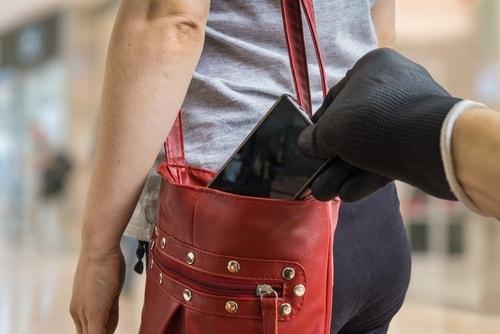 There are two basic types of theft one can be charged in the state of Illinois: petty theft and felony theft. One may sound less severe than the other, but both can have lasting implications for the accused. Learn more about these classifications of theft, their consequences, and what you can do to fight back against the charges.
There are two basic types of theft one can be charged in the state of Illinois: petty theft and felony theft. One may sound less severe than the other, but both can have lasting implications for the accused. Learn more about these classifications of theft, their consequences, and what you can do to fight back against the charges.
Defining Theft in Illinois
The Illinois Criminal Code defines theft as intentionally or knowingly depriving an owner of their property. The includes all manner of theft, such as obtaining or exerting unauthorized control over an owner or their property, deceiving another to gain unauthorized control over their property, or using threat or force to obtain control over another’s property. One can also be charged with theft if they obtain or exert control over assets that they knew had been stolen—buying stolen goods, for example.
Finding the Right Criminal Defense Attorney
 So, you have been accused of a crime; now what? First of all, remember that you have the right to remain silent. You do not need to speak to any police officer or other authority figure about anything relating to your case. Law enforcement officials are skilled at their jobs and have been known to manipulate facts to coax people into admitting guilt. Do not fall for this. Instead, it is vital that you seek the help of a skilled Illinois criminal defense attorney immediately. Criminal charges can be life changing and without assistance, you may find yourself facing severe legal, financial, and emotional consequences. It is important that you hire an attorney with the knowledge and skills required for your specific charges. Finding a quality attorney, however, can be tougher than it sounds, and it starts with asking the right questions.
So, you have been accused of a crime; now what? First of all, remember that you have the right to remain silent. You do not need to speak to any police officer or other authority figure about anything relating to your case. Law enforcement officials are skilled at their jobs and have been known to manipulate facts to coax people into admitting guilt. Do not fall for this. Instead, it is vital that you seek the help of a skilled Illinois criminal defense attorney immediately. Criminal charges can be life changing and without assistance, you may find yourself facing severe legal, financial, and emotional consequences. It is important that you hire an attorney with the knowledge and skills required for your specific charges. Finding a quality attorney, however, can be tougher than it sounds, and it starts with asking the right questions.
Questions for Potential Attorneys
Fleeing From Police in Illinois
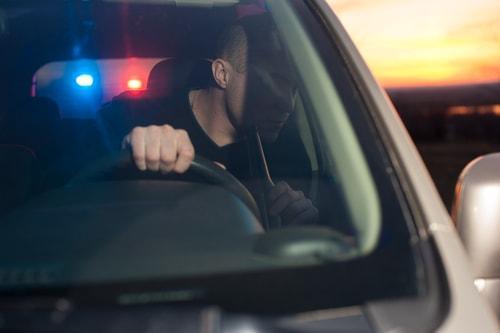 Fleeing from a police officer is one of the most serious traffic offenses in Illinois. If a police officer tries to pull you over but you do not cooperate, you could face jail time and suspension of your driver’s license, as well as a permanent mark on your criminal record.
Fleeing from a police officer is one of the most serious traffic offenses in Illinois. If a police officer tries to pull you over but you do not cooperate, you could face jail time and suspension of your driver’s license, as well as a permanent mark on your criminal record.
Fleeing and Eluding
To convict a person of fleeing or attempting to elude a peace officer, the prosecution must show three things:
- That the offender was driving a motor vehicle;
- That the police officer gave the driver a visual or audible signal to bring the vehicle to a stop; and
- That the driver willfully failed to stop, increased speed, extinguished the car’s lights, or otherwise fled.
Willfully means that the prosecution must show that the fleeing was purposeful. If the driver fled or eluded the officer unintentionally, he or she cannot be convicted.
Statutory Suspension or Revocation of Your License for a DUI
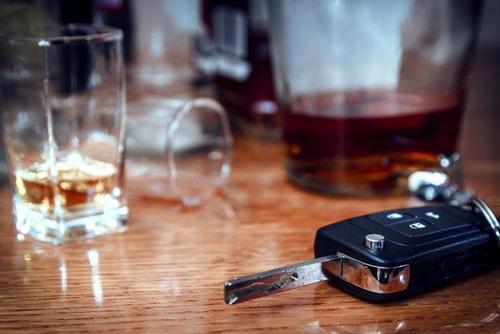 Getting caught driving under the influence (DUI) can be a frightening experience. Knowing what to expect can help reduce some of the anxiety, but it can also give you the tools you need to develop a strategy. It is important to understand how the law works regarding the statutory suspension and revocation of a driver’s license for those who have been arrested on charges of DUI.
Getting caught driving under the influence (DUI) can be a frightening experience. Knowing what to expect can help reduce some of the anxiety, but it can also give you the tools you need to develop a strategy. It is important to understand how the law works regarding the statutory suspension and revocation of a driver’s license for those who have been arrested on charges of DUI.
What Happens After the Arrest?
Once you are arrested for DUI, you must choose whether to submit to chemical tests or decline. If you decline, or if your results exceed the legal limits, the Illinois Secretary of State receives confirmation of your DUI arrest. From there, the agency sends you notification of the summary suspension/revocation. This is typically sent out within one to two weeks after they receive your test results or refusal to test.
When Does Your Suspension Go Into Effect?
Driver's License Reinstatement in Illinois
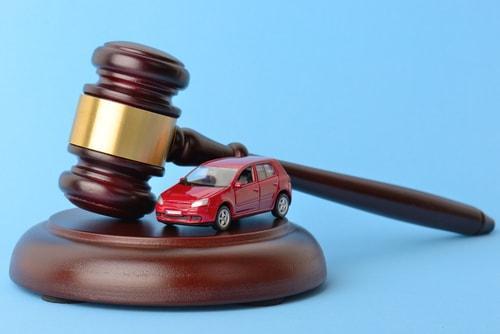 If you are convicted of a criminal offense—especially one related to driving—it is very common that the consequences may include the suspension or revocation of your driver’s license. Some offenses may even bar you from ever getting it back. Depending on the circumstances of the situation, you may be able to apply for its reinstatement, though the process can be complex.
If you are convicted of a criminal offense—especially one related to driving—it is very common that the consequences may include the suspension or revocation of your driver’s license. Some offenses may even bar you from ever getting it back. Depending on the circumstances of the situation, you may be able to apply for its reinstatement, though the process can be complex.
Reasons for Revocation
Many people are surprised when their license is revoked or suspended because it can be done for reasons that have nothing to do with driving. The rationale is that driving is a fundamental privilege that many people take for granted, and taking a person’s license away may wake some people up, so to speak, prompting correct whatever has caused the suspension or revocation.
Some examples of offenses that can lead to your license being revoked or suspended include:
Driving on a Suspended or Revoked License
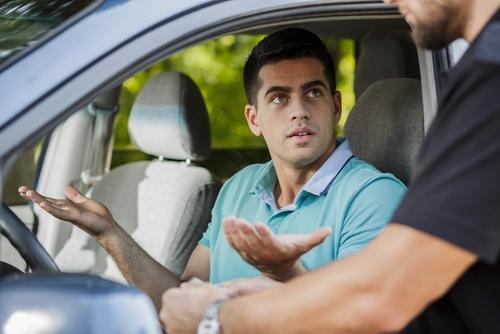 Learning that your driving privileges have been suspended or revoked in Illinois can be quite an upsetting occurrence – especially when it is a law enforcement officer who informs you of this fact during the course of a traffic stop. You may have had no idea that your driver’s license was suspended or revoked, yet you may be placed under arrest and charged with a misdemeanor or felony offense (depending on the number of times you have been convicted of driving while your license was suspended or revoked). What is more, restoring your driving privileges can be just as confusing as knowing how to address your criminal charges.
Learning that your driving privileges have been suspended or revoked in Illinois can be quite an upsetting occurrence – especially when it is a law enforcement officer who informs you of this fact during the course of a traffic stop. You may have had no idea that your driver’s license was suspended or revoked, yet you may be placed under arrest and charged with a misdemeanor or felony offense (depending on the number of times you have been convicted of driving while your license was suspended or revoked). What is more, restoring your driving privileges can be just as confusing as knowing how to address your criminal charges.
Discovering the Reason for Your Suspension or Revocation in Illinois
A "suspension" is a temporary cancellation of your driving privileges for a specific period of time or until a certain condition is fulfilled. A "revocation" is an indefinite cancellation of your driving privileges that may or may not be reversed.
License Suspension and BAIID Use
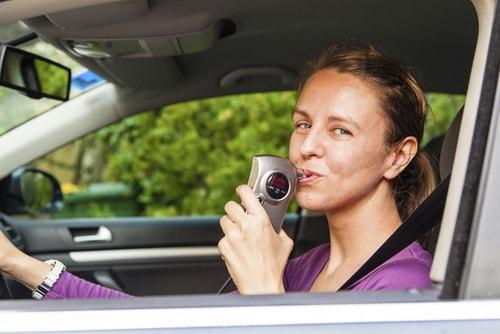 Most people who decide to get behind the wheel after drinking usually realize that what they are doing is illegal and dangerous. Awareness regarding the danger and irresponsibility of drunk driving has steadily increased since the early 1990s when many states began to launch serious campaigns to deter drunk drivers. Around the same time, police departments across the country focused their efforts on cracking down on drunk driving offenses.
Most people who decide to get behind the wheel after drinking usually realize that what they are doing is illegal and dangerous. Awareness regarding the danger and irresponsibility of drunk driving has steadily increased since the early 1990s when many states began to launch serious campaigns to deter drunk drivers. Around the same time, police departments across the country focused their efforts on cracking down on drunk driving offenses.
Unfortunately, however, the problem of driving under the influence has not, in any real way, been eradicated. The numbers, in fact, tend to fluctuate with no discernable pattern from one year to the next. In 2012, for example, there was a significant increase in the number of fatalities resulting from drunk driving, that after 2011 when the death toll fell below 10,000 for the first time.
Reaction to Rising Death Numbers
That year saw a 3.3 percent increase in fatalities, causing some activists to call for ignition interlock devices to be installed in the car of every convicted drunk driver across the country. In Illinois, a person convicted of drunk driving may apply for driving relief during the period of statutory license suspension and choose to have a Breath Alcohol Ignition Interlock Device (BAIID) installed in his/her vehicle. If a person convicted of drunk driving qualifies for the program and has the BAIID installed in his vehicle, there are no other stipulations regarding his driving rights. He or she may drive anywhere at any time and is allowed to travel, even interstate, providing that the BAIID is installed and functioning properly.
Underage Drunk Driving and Fake IDs
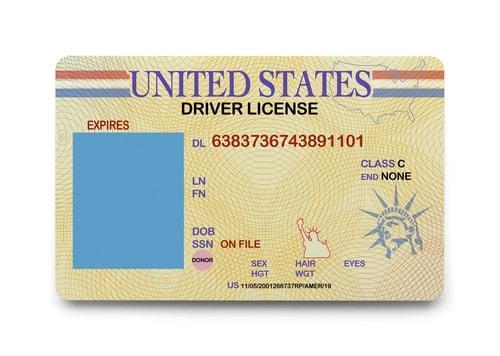 Using a fake identification card and underage drinking and driving are offenses that often go hand-in-hand. While fake IDs are not always the cause for underage, intoxicated drivers behind the wheel, they significantly increase the number of young drivers able to obtain alcohol, more easily enabling them to drive after they have been drinking. Whether you have been involved in the distribution or carrying of an illegal ID, or have simply used your personal identification to purchase and distribute alcohol to someone under the legal drinking age, you are at risk for a variety of penalties under Illinois law.
Using a fake identification card and underage drinking and driving are offenses that often go hand-in-hand. While fake IDs are not always the cause for underage, intoxicated drivers behind the wheel, they significantly increase the number of young drivers able to obtain alcohol, more easily enabling them to drive after they have been drinking. Whether you have been involved in the distribution or carrying of an illegal ID, or have simply used your personal identification to purchase and distribute alcohol to someone under the legal drinking age, you are at risk for a variety of penalties under Illinois law.
Penalties for Possessing and Using a Fake ID
If you are caught using a fake ID, you will face the loss of your driving privileges for up to one year. Additionally, you can be convicted of a Class A misdemeanor or a Class 4 felony if you do any of the following:
- Lend someone your license;
Allegations of Domestic Violence Can Be Dangerous
 Domestic battery is a serious offense in the state of Illinois. It is also an act that can be reported by someone other than your spouse, child, or significant other. Mandatory reporters—those that are required to report acts of domestic violence to the authorities—can be found in schools, doctor’s offices, and hospitals. Thanks to a new law, you will now find potential reporters in the salon as well.
Domestic battery is a serious offense in the state of Illinois. It is also an act that can be reported by someone other than your spouse, child, or significant other. Mandatory reporters—those that are required to report acts of domestic violence to the authorities—can be found in schools, doctor’s offices, and hospitals. Thanks to a new law, you will now find potential reporters in the salon as well.
Beauticians and stylists will undergo training to help them learn how to talk to victims of domestic violence. They will not face legal ramifications if they do not report suspected abuse, but they will be encouraged to do so when the situation is appropriate. The goal is to ensure that victims who really need help receive it, but not all people who are reported have actually abused someone. In fact, false allegations of domestic violence and abuse are rather common - more common than most people realize. What might a false reporting mean for you and your family?
Distracted Drunk Driving; A Dangerous Combination
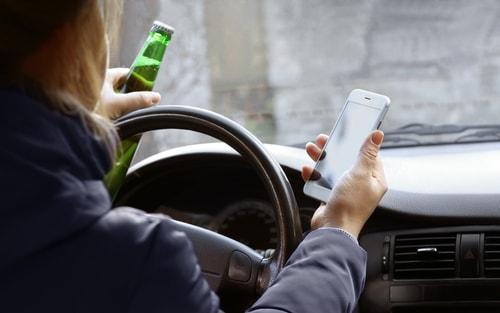 As cell phone technology continues to advance, it is getting harder and harder for some people to put their devices down while driving. Despite being surrounded by warnings of the dangers of texting while driving, a large percentage of drivers—many of them in their late teens and early twenties—continue to pay more attention to their phones than they do to the safe operation of their vehicle. Distracted driving is bad enough, with thousands of accidents every year caused by inattentive drivers, but adding alcohol to the mix can lead to even more catastrophic results.
As cell phone technology continues to advance, it is getting harder and harder for some people to put their devices down while driving. Despite being surrounded by warnings of the dangers of texting while driving, a large percentage of drivers—many of them in their late teens and early twenties—continue to pay more attention to their phones than they do to the safe operation of their vehicle. Distracted driving is bad enough, with thousands of accidents every year caused by inattentive drivers, but adding alcohol to the mix can lead to even more catastrophic results.
College Student Arrested for Drunk Driving While Taking a Snapchat Photo
Last October, a freshman at Texas A&M University was booked on drunk driving charges after the car she was driving slammed into the back of a parked police cruiser. The police officer, who had been responding to a domestic disturbance call, approached the young woman’s car and found her sitting in the driver’s seat without a shirt. According to an affidavit filed by the officer, the woman said that she was trying to take a sexy Snapchat photo for her boyfriend while she was at a red light.







